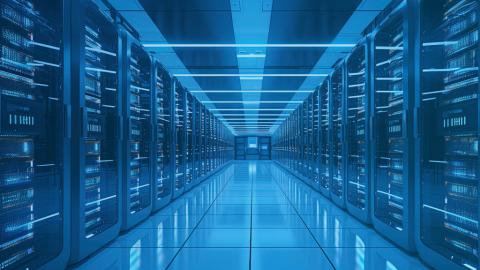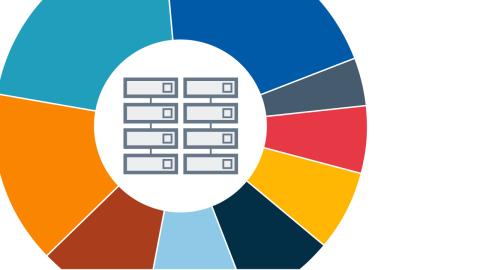Data center operators and IT tenants have traditionally adopted a binary view of cooling performance: it either meets service level commitments, or it does not. The relationship is also coldly transactional: as long as sufficient volumes…

Daniel Bizo
Over the past 15 years, Daniel has covered the business and technology of enterprise IT and infrastructure in various roles, including industry analyst and advisor. His research includes sustainability, operations, and energy efficiency within the data center, on topics like emerging battery technologies, thermal operation guidelines, and processor chip technology.
dbizo@uptimeinstitute.com
Latest Research
Prolonged supply chain difficulties, high energy prices, and sweeping sustainability mandates — the digital infrastructure sector had its plate full in a tumultuous 2022. But new uncertainties abound that add more risk to operations and business…
Data centers have become victims of their own success. Ever-larger data centers have mushroomed across the globe in line with an apparently insatiable demand for computing and storage capacity. The associated energy use is not only expensive (and…
The COVID-19 pandemic — and the subsequent disruption to supply chains — demonstrated the data center industry’s reliance on interdependent global markets and the components they produce. Although the data center sector was just one of many…
Uptime Institute Intelligence looks beyond some of the more obvious trends of 2023 - that the sector continues to expand and innovate while facing stricter regulatory requirements - and identifies some challenging issues.
Rack power density is a key metric that informs engineers in making design choices for data centers. This data report tracks changes in power densities since 2018, showing a trend towards greater server and rack power.
Uptime Institute’s outages database suggests data center fires are infrequent, and rarely have a significant impact on operations. Uptime has identified 14 publicly reported, high-profile data center outages caused by fire or fire suppression…
Direct liquid cooling delivers operational savings and sustainability benefits. Most data center operators predict a substantial increase in adoption - and yet, concerns over the cost, leaks, and system failures persist.
The Uptime Institute Global Data Center Survey is the most comprehensive of its kind. The findings reveal the experiences of data center operators in the areas of performance, resiliency, efficiency and sustainability.
When Uptime Institute Intelligence surveyed data center infrastructure operators about supply chain issues in August 2021, more than two-thirds of respondents had experienced some shortages in the previous 18 months. Larger operations bore the brunt…
A rapid rise in the concentration of processor thermal power will have far-reaching consequences, not only for servers but for facility design and operations.
An extreme heat wave swept across much of Western Europe on July 18 and 19, hitting some of the largest metropolitan areas such as Frankfurt, London, Amsterdam and Paris — which are also global data center hubs with hundreds of megawatts of capacity…
Chip designer Advanced Micro Devices (AMD) has successfully mounted a challenge to Intel’s dominance in data center processors by focusing on energy-efficient server chips. AMD plans to further expand its presence in data centers by bringing more…
Direct liquid cooling (DLC) is a collection of techniques that removes heat by circulating a coolant to IT electronics. Even though the process is far more efficient than using air, the move to liquid cooling has been largely confined to select…
Shifts in business expectations and technical requirements are moving data center operators towards direct liquid cooling. There are hurdles to overcome, but many in the industry expect this evolution to be just a matter of time.











